$40bn Forest City To "Eliminate The Discomfort of Skyscrapers"
One of China's largest residential property developers Country Garden Holdings has announced one of the world's most ambitious projects, Forest City, a gargantuan $38 billion-plus housing development under way on four man-made islets off the coast of Malaysia.
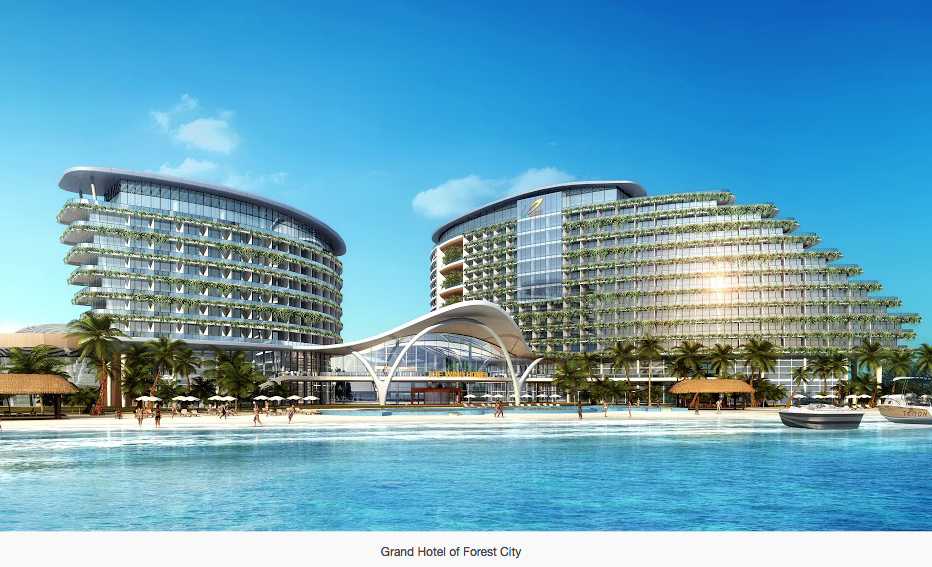
Country Garden Vice President Huang Yuzhuang said while the Chinese property market will still boom, "it is very important we plan ahead."Forest City is composed of four artificial islands, while research scope of this design competition covers the middle part of the east side of Island One. The northeast of the research scope accommodates the sales gallery, transportation hub and Fisherman's Wharf that have been erected and Forest Hotel to be completed.
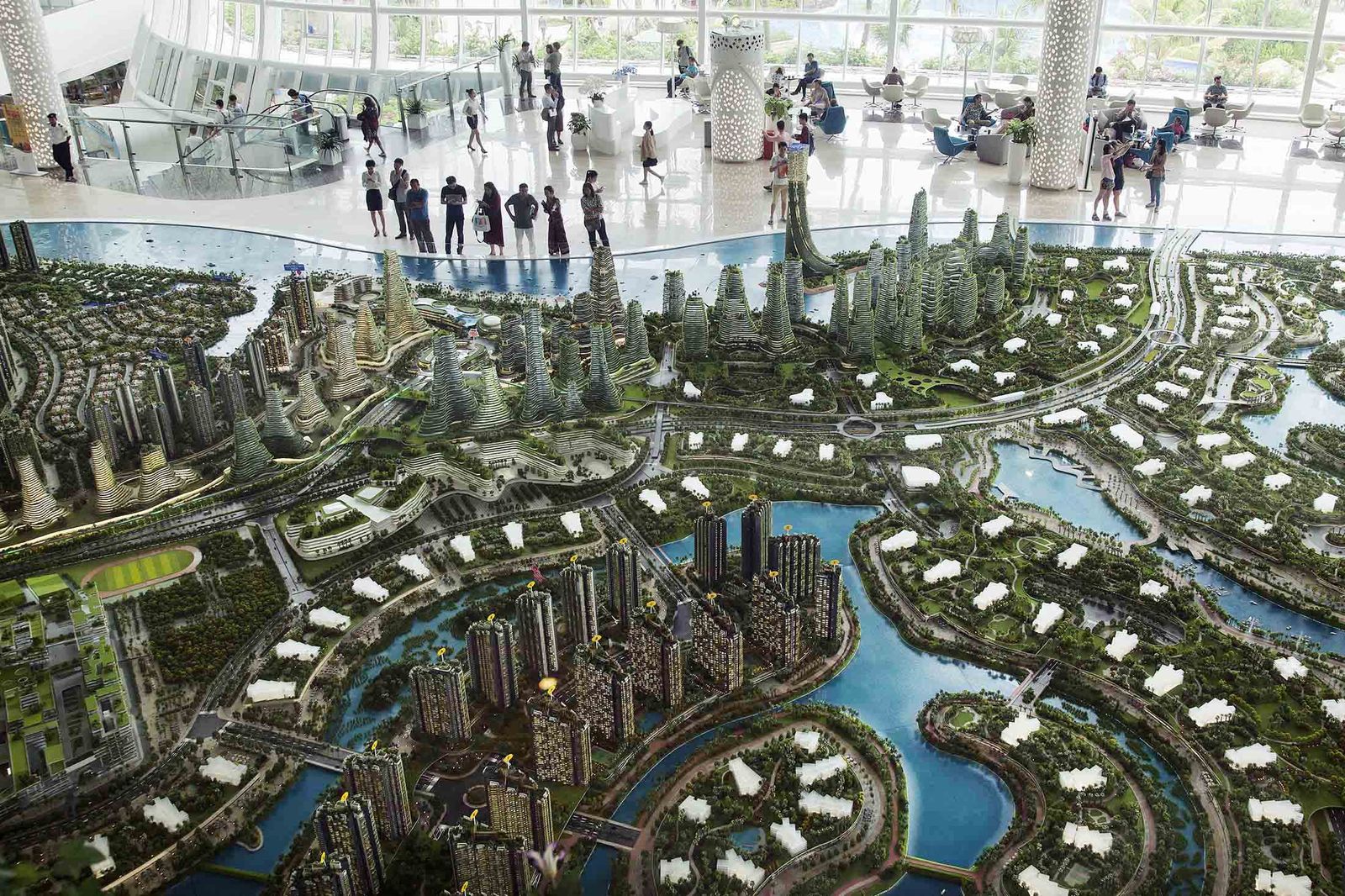
Urban design takes into account four plots covering a total area of 24.0 hectares and the design focuses on plot A and B with an area of 8.9 hectares. The landmark building consists of serviced apartments, high star-level hotel, commercials and customs, which will become the most important core buildings in Forest City in the future; it is required to design a unique landmark ecological complex.

Forest City has both water and land customs leading directly to Singapore, and the water customs is arranged at the podium building on plot A and connected to convenience facilities such as duty-free shops, light railway and transportation hub.

Forest City, which broke ground in 2013, is jointly developed with a company controlled by the Sultan of Johor, the Malaysian state where the project is located, and is being built near Malaysia’s border with Singapore to lure wealthy investors from both countries.
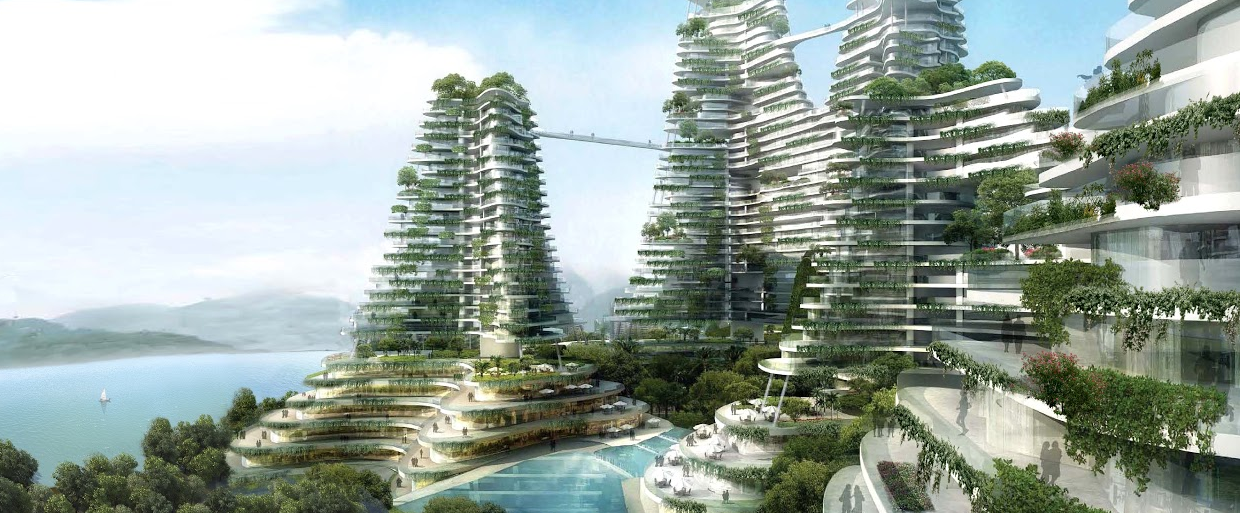
To be environmentally friendly, all cars and trucks are being confined to underground passageways, while the buildings will be saturated with green plants. Yeung is also eyeing Indonesia and Vietnam for upcoming developments. “A good company should be welcomed by the world,” he says.
Investing 100 billion Dollars to Build Ecological and Smart Cities
Forest City of Country Garden is doubtless a helpful exploration seeking to eliminate the discomfort people experience in high-rise buildings, which generally means being down to earth and formally means being green, ecological and environmentally-friendly.
As the Rio Olympic Games is exhibiting fierce competitions, an international landmark design “Olympic Games” kicked off in Beijing to summon global “prehistorical powers” for design.
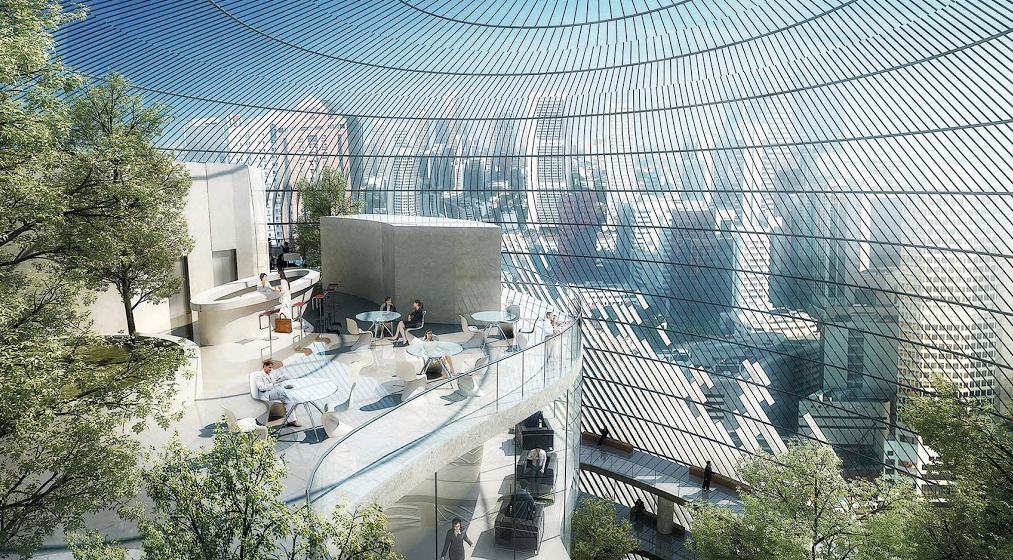
At the press conference of the “Green Skyline·Forest City Landmark Architecture International Competition," the high-level jury caught the most attention.
The jury is composed of four academicians of Chinese Academy of Engineering and four foreign master architects, including Adrian Smith, father of the world’s tallest building Dubai Tower, He Jingtang, academician of Chinese Academy of Engineering and the father of China Pavilion of Shanghai Expo, Jiang Huancheng, academician of Chinese Academy of Engineering and architect of the Oriental Pearl Tower, Cui Kai, academician of Chinese Academy of Engineering and architect of Beijing Olympic Tower, Meng Jianmin, academician of Chinese Academy of Engineering and architect of the headquarters of Port Inspection Building at Hong Kong-Shenzhen Western Corridor, Yan Xunqi, architect of HKSAR Government Headquarters, Benjamin Warner, architect of the Iceberg, and Roberto Bannura, architect of Taiwan ChinPaoSan Necropolis.
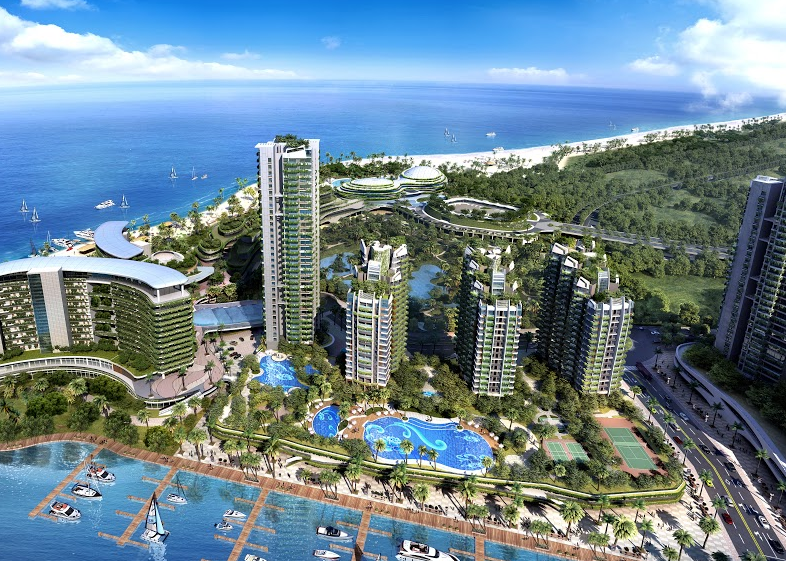
Nor Aida Ismail, official of Ministry of Tourism of Malaysian Embassy in China, Huang Yuzang, Vice President of Country Garden, Zhu Jianmin, Vice President of Country Garden, Jiang Huancheng, Benjamin Warner, Roberto Bannura and other guests attended the press conference held in Beijing.
About Country Garden Holdings
Yeung, 61, is founder and chairman of Country Garden Holdings , one of China’s largest residential-property developers. Since putting up its first apartments 24 years ago, Country Garden has undertaken more than 500 projects in over 300 cities and built housing for 3 million people. With an unusual strategy–offering luxury residences outside of major urban centers–his Hong Kong-listed company has thrived even through an up-and-down property market. Revenue has nearly tripled since 2012, to an expected $18.8 billion this year, while net profit will likely jump nearly 40% over that same period, to a forecast $1.5 billion.
Yeung is trying to capture extra growth by developing more projects in China’s biggest cities, including Shanghai and Guangzhou. Last month Yeung announced he would also invest $15 billion in ten “Tech Town” developments around major cities that would mix Country Garden housing with office parks for startup companies.
Approach
Though Country Garden’s strategy of building in smaller cities and suburban areas has served it well, the company has also missed out on some significant growth. In Shanghai, Beijing and other major urban centers, demand for new housing is almost always strong and prices tend to be higher. As a consequence prices in China’s top-tier cities were 31% higher in June than a year earlier. Outside of these metropolises there remains a large number of unsold apartments, left over from the country’s latest investment boom, which is suppressing property values.














